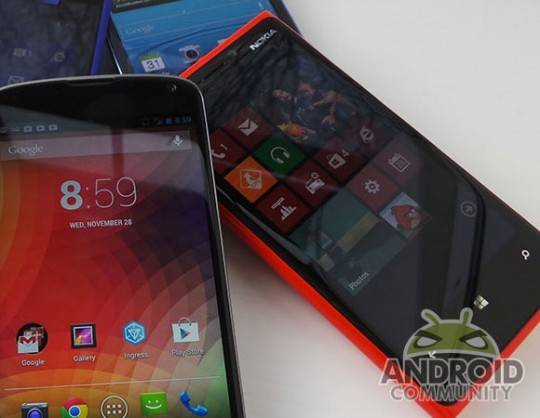
In an “ask me anything” session today, former Nokia chief and current Microsoft head of devices and services Stephen Elop answered questions on a variety of topics. One of those was Nokia’s decision to make devices for the Windows Phone platform instead of Android. When prompted if he thought it was the right decision, his answer was as reasonable as it was surprising.
When asked “do you think that Nokia with Android is a good idea?”, Elop elaborated a bit more than anticipated. In his response, it was clear the choice was measured, and aimed at survival:
When we made the decision to focus on Windows Phone back in 2011, we were very concerned that a decision to pursue Android would put us on a collision course with Samsung, who already had established a head of steam around Android. That was the right decision, as we have seen virtually all other OEMs from those days pushed to the side. Today, we are using AOSP to attack a specific market opportunity, but we are being thoughtful to do it in a way that accrues benefit to Microsoft and to Lumia.
Already caught with their guard down, Nokia chose to forge a path nobody else was considering in Windows Phone dominance. While that likely meant (and eventually did) lead to a dimishined market share, it didn’t kill them off. Well, didn’t kill them off as quickly as it could have, at least.
Elop actually makes a salient point, and shows that Nokia knew what they were up against in Samsung. At the time Nokia was facing a decision to build devices for a platform other than their defunct Symbian, HTC and Motorola were trending downward while the deep-pocketed Samsung was on the rise. Faced with a competitive Android market and Windows platform that needed a true partner, the choice for Nokia was clear.
Though they eventually folded into Microsoft, they’ve managed to keep themselves alive as a service-oriented company. That likely wouldn’t have been the case had they tried to join the Android mix all those years ago. Had they jumped into the deep water when everyone was goading them, it’s plausible the company would have simply folded entirely and left the world with nothing.
Source: Nokia/Microsoft










Elop has said this many times in interviews, and he might be right (he’s probably more clued up than me), but nevertheless I still think that had Nokia gone with Android and developed the same apps and services as it did, and the same PureView technology, and produced handsets like the N8, PureView 808, N900 and Lumia 1020 etc – plus the other great phones let down by a poor or undeveloped OS, from Symbian to Windows Phone (as it was then – it’s pretty good now, to be fair), it would have been more than able to compete with Samsung.
In fact, Samsung took some time to sort itself out and realise that it could play Apple at its own game with a big emphasis on the annual release of a new flagship and all the hype that stirs consumers up into a frenzy. The Galaxy S3 was perhaps a time when everyone could see that Samsung had got everything together – from the hardware, through to the marketing, distribution, retail (supported with many financial incentives and field marketing teams to help sell the kit) and backing of the carriers.
Had Nokia not gone with Windows Phone, bearing in mind that Nokia had perhaps the best relationships with carriers and distributors (that Samsung had to work on for years), I am certain it could have actually slowed down Samsung’s success – or halted it completely.
But we’ll never know. That is unless Nokia decides to give it another go in 2015 and hire in some new talent or partner up with another manufacturer.. like HTC perhaps?
Nokia surrendered by choosing Windows back then, they played the safe card, counting on the Microsoft support. It was totally a defensive move.
Otherwise I would say they went against the whole Android system rather than avoiding Samsung.
dramatic much?
I agree with the guy. We forget that Samsung is not just a mobile device manufacturer. They are a huge diverse company, with very deeeep pockets. Back then Samsung was the only hardware company making money from android via their services. Everyone else struggled to keep ul with them. Nokia took a chance. A safer bet, which didn’t work too great. But they where brave enough to do so. Now when one thinks about windows phone one thinks Lumia. Android however, one thinks of galaxy, htc one, nexus,etc too much competition.
Nokia chose to be a big fish in a small pond, rather than a small fish in a huge pond.
Thanks Nokia. You have been great!